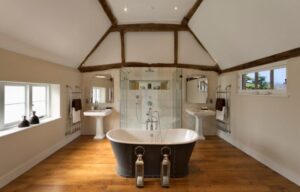Is It Cheaper to Buy Land and Build a House? Let’s Break It Down
Hey there, future homeowner! So, you’re daydreaming about ditching the cookie-cutter house hunt and building your perfect home from scratch. Maybe you’ve binge-watched too much HGTV, or maybe you’re just tired of touring homes with “quirky” layouts (read: kitchens in basements). But here’s the million-dollar question: Is it actually cheaper to buy land and build a house, or are you better off settling for that fixer-upper with “good bones”? Let’s grab a coffee and unpack this together.
Contents
- 1 The Land Factor: Location, Location… and Surprises
- 2 Construction Costs: The Devil’s in the Details
- 3 Hidden Costs: The Plot Twists Nobody Warns You About
- 4 Time vs. Money: What’s Your Priority?
- 5 Resale Value: Which Option Wins Long-Term?
- 6 Buy Land + Build vs. Buy Existing: A Side-by-Side Comparison
- 7 3 Common Questions (Answered Without the Jargon)
- 8 Final Thoughts: So… What’s the Verdict?
The Land Factor: Location, Location… and Surprises
First things first: buying land sounds simple, right? Find a pretty plot, plop down a house, and boom—instant equity. Not so fast. Land prices vary wildly. A rural acre might cost less than a fancy dinner, but urban lots? Let’s just say you’ll need a trust fund or a very convincing loan officer.
And don’t forget zoning laws, utility access, and soil testing. Ever heard of someone buying land only to realize they can’t build because the soil’s softer than a marshmallow? Yikes. That’s where working with a general contractor like our team at Verified Builders comes in handy. We’ve seen it all, and we’ll help you dodge those “gotcha” moments.
Construction Costs: The Devil’s in the Details
Alright, let’s say you’ve got the land. Now, what’s building actually cost? Here’s the thing: materials and labor are sneaky little budget-busters. Lumber prices swing like a pendulum, and skilled labor? Let’s just say good home remodeling contractors aren’t working for pocket change.
Here’s a quick breakdown of typical expenses:
- Design fees: Architects don’t sketch dreams for free.
- Permits: Unless you enjoy paperwork as a hobby, this part’s a drag.
- Materials: Custom cabinets? Quartz countertops? Cha-ching.
- Labor: You’re paying for expertise. Ever tried DIY electrical work? Don’t.
Pro tip: If you’re eyeing luxury home renovations or a whole house remodeling project, partnering with a seasoned remodeling company (hi, that’s us!) ensures you don’t blow the budget on Pinterest-inspired regrets.
Hidden Costs: The Plot Twists Nobody Warns You About
Building a home is like a mystery novel—full of unexpected twists. Here are a few “surprises” you might encounter:
- Utility hookups: Water, sewer, electricity. If the land’s off-grid, prepare for sticker shock.
- Landscaping: That dirt pile won’t turn into a lush lawn by itself.
- Delays: Rain, supply shortages, or that one permit that takes six months.
FYI, these hidden costs can add 10–20% to your budget. But hey, at least you’ll have a great story for parties (“Remember that time we lived in an RV for a year?”).
Time vs. Money: What’s Your Priority?
Let’s be real: building a house takes time. We’re talking 6–12 months (or more) of planning, permits, and patience. Meanwhile, buying an existing home? You could close in 30 days and binge Netflix in your new living room by Christmas.
But here’s the trade-off: customization. Building lets you choose everything, from floor plans to doorknobs. Hate carpet? Opt for hardwood. Need a basement remodel contractor-approved man cave? Done. Love open-concept kitchens? You do you.
Resale Value: Which Option Wins Long-Term?
Ah, the golden question: Will your custom home hold its value? Typically, yes—if it’s well-built and in a desirable area. But existing homes in established neighborhoods often appreciate steadily too.
The kicker? Luxury home renovations or home additions (like a bathroom renovation contractor-approved spa shower) can boost resale value on any property. IMO, it’s less about the house and more about location and upgrades.
Buy Land + Build vs. Buy Existing: A Side-by-Side Comparison
| Factor | Buy Land + Build | Buy Existing Home |
|---|---|---|
| Upfront Cost | High (land + construction) | Lower (unless it’s a fixer-upper) |
| Customization | Total control (hello, dream kitchen!) | Limited (goodbye, avocado-green tile?) |
| Timeline | 6–18 months (patience required) | 1–3 months (instant gratification) |
| Hidden Costs | Utilities, permits, delays | Repairs, home renovation contractor fees |
| Resale Potential | High (if modern and well-located) | Depends on market and upgrades |
3 Common Questions (Answered Without the Jargon)
1. “Is building always more expensive than buying?”
Not necessarily! If you’re in a rural area or find affordable land, building can rival buying—especially if you avoid luxury home renovations and keep the design simple.
2. “How long does it take to build a house?”
Anywhere from 6 months to 2 years. Delays happen, but a solid general contractor (like yours truly at Verified Builders) keeps things on track.
3. “Should I just renovate instead?”
If you love the location but hate the layout, whole house remodeling or a home addition might be cheaper. We’ve turned plenty of “meh” homes into masterpieces!
Final Thoughts: So… What’s the Verdict?
Here’s the tea: Building can be cheaper IF you’re strategic. Buy affordable land, avoid over-the-top designs, and work with a remodeling company that’s transparent about costs (ahem, like us). But if time’s tight or you hate surprises, an existing home + custom remodels might save your sanity.
Either way, do your homework. Read reviews, compare basement contractors near me, and—shameless plug—give Verified Builders in Denver a shout. We’ll help you crunch numbers, dodge pitfalls, and maybe even crack a joke about permits along the way.
Ready to turn your “what if” into “heck yes”? Let’s chat. Because whether you’re building from dirt or renovating a diamond in the rough, your dream home shouldn’t feel like a mystery novel with a bad ending. 😉


